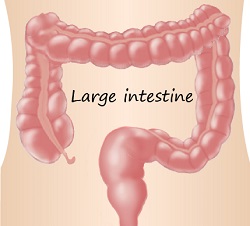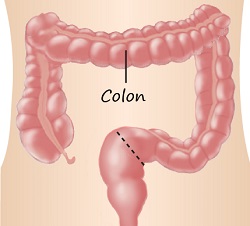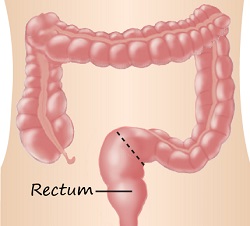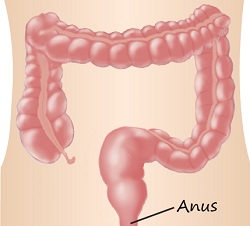What is colorectal cancer?
-
Colorectum (colon and rectum, the large bowel, or large intestine) is the last portion of the digestive system. It consists of the colon, the rectum and the anus.

-
The water and nutrients of food are absorbed when they pass through the digestive system. The remaining waste (faeces) is eventually passed out of the body through the anus.
  
-
Our body consists of a large number of different cells. In normal circumstances, the body controls the growth and division of its cells, in order to ensure that all organs function properly.
_v1.jpg)
-
Cancer is a diverse group of diseases in which the body cells multiply out of control. These abnormal cells invade and spread to other parts of the body and cause damage. There are more than 100 types of cancers and each cancer has its own pattern of causation, behaviour and spread.
-
Under the influence of various behaviours, environmental factors and genetic factors, colorectal cancer results from an abnormal growth of cells on the wall of the large bowel.
_v1.jpg)
-
Most colorectal cancers begin as a small polyp. Polyps are usually benign, but some may gradually develop into cancer. The development of a polyp into cancer may take more than 10 years.
_v1.jpg)
-
If not treat earlier, cancer cells may invade and damage nearby organs, they can also spread to other parts of the body via the bloodstream and lymphatic system.
|
|